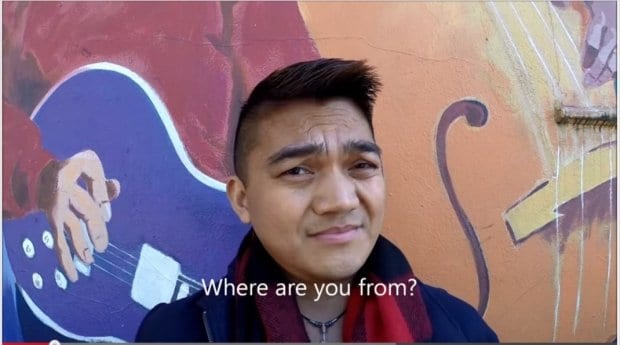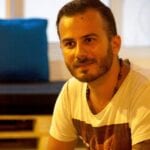A pilot project designed to support lesbian, gay, bisexual, trans and queer newcomers to Canada has run out of funding but organizers are determined to maintain as many of its services as possible.
Conceived by MOSAIC Settlement Services and funded by Citizenship and Immigration Canada, the I Belong project concluded its six-month pilot phase in April.
Khim Tan, MOSAIC’s senior manager of settlement services, says she and her colleagues met LGBT newcomers through the organization’s programs and realized “that their needs are quite unique.”
“They experience homophobia, transphobia and racism on top of all the other challenges facing newcomers,” says Darae Lee, MOSAIC’s manager of settlement and integration.
“We were able to secure a small amount of money to focus on LGBTQ newcomers,” Tan says, “hence the birth of I Belong.”
Launched in October 2014 in MOSAIC’s Burnaby and New Westminster offices, I Belong offered support groups, a community dialogue, and one-on-one mentorships to support newcomers and help them integrate into Canadian society.
“We realized that we just scratched the surface in terms of creating more awareness of their needs,” Tan says.
According to I Belong’s Participatory Recommendations Report, LGBT newcomers face many barriers: lack of adequate resources and supportive services; lack of training, education and mental health support; personal challenges such as language, loneliness and lack of a community to belong to; logistical issues such as housing and employment; lack of support facing racism, homophobia and colonialism, as well as lack of greater community awareness of the challenges they face.
The report calls on service providers to strategize for safe housing and employment for LGBT immigrants, and to make services and resources more accessible and friendly to them.
“Service providers are not ready to serve [LGBT newcomers],” Lee says, “because of lack of understanding and awareness.”
The report also recommends several changes to government policies, such as providing access to services for everyone, including refugees and non-status immigrants; allocating more funding to address the mental health issues faced by LGBT newcomers; and offering businesses and organizations support to benefit from LGBT newcomers’ talents.
The report also calls for the community to create a non-hierarchical space for new immigrants, while protecting their privacy and their right to self-determination.
“Nothing is more powerful than hearing from the newcomers themselves,” Tan says.
Karen George facilitates MOSAIC’s social mentoring program. She recalls working with a lesbian from Russia who wanted to meet someone who could answer her questions without judgement. “Because she was willing to talk about it, I managed to go more in-depth and understand what exactly she was looking for,” George says.
Since losing funding for I Belong, MOSAIC has absorbed some of the program’s services, such as the mentorship program, into its existing settlement services in hopes of continuing to support the unique needs of LGBT newcomers. The mentorship program relies on community volunteers and matches them temporarily with newcomers.
“We couldn’t do it on our own,” Tan explains. “We really needed a lot of champions in the community — people who themselves lived these experiences — because this is how you create a sense of safety and connectiveness.”
George says the three months the Russian lesbian spent with her mentor gave her a whole new perspective on life in Canada. “She was able to find a job, find an apartment. The mentorship gave her the confidence.”
Samir Modhwadia, a student at the University of British Columbia, worked as a practicum student with I Belong. “It’s not only feeling supported, but knowing that you can give support as well,” he says. “One thing that I found amazing is that during the support group meetings, someone would say that they are having difficulty with housing, and others would generously help.”
Lee says MOSAIC wants to move the project forward, despite a lack of funding. “Everyone is very much stretched, running a program without funding,” she says, “[but] this is not just a project; it’s something connected to our hearts.”
“I’m very proud of this project. It has been a huge learning experience,” Tan adds. “Despite the lack of funds, I think it’s good that we started this. The challenge now is how to sustain it beyond this pilot, how to keep the momentum going. I do believe we can, but not on our own.”
To watch MOSAIC’s I Belong video click here.
To contact MOSAIC go to mosaicbc.com.


 Why you can trust Xtra
Why you can trust Xtra


